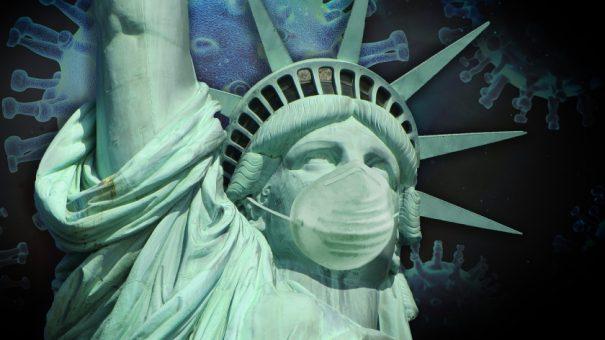Has COVID-19 forever changed the way pharma does business?

There’s no doubt that the COVID-19 pandemic has thrust digital engagement into the spotlight for the pharmaceutical industry – but does this really sound the death knell for physical interaction as we know it?
It wasn’t that long ago that I had a fairly full event calendar for the rest of the year, but in the space of just a few weeks most of those conferences have either been cancelled or postponed. I imagine this resonates with many of you reading this too!
However, some events are taking a different approach. As our coronavirus conference monitor shows, many of those events have now gone digital, rather than choosing to just cancel or delay. While it’s been a sudden transition, particularly for March events like eyeforpharma Barcelona, many have handled the jump admirably.
This raises the inevitable question of whether any will go back to having a physical presence at all once the outbreak is over. Likewise, will smaller one-to-one customer meetings be supplanted by eDetails and teleconferences?
In short, is the future of the pharmaceutical industry a virtual one?
From some perspectives, you could argue this change was already on the way before the outbreak, with the major medical association websites displaying video, webinars and other multimedia from their meetings, transforming into ongoing digital publications / learning centres rather than static assets that drive congress attendance.
But like most topics in pharma, I don’t think the future is so black and white, and I certainly don’t see the industry suddenly switching to purely virtual meetings. Rather, the real impact of the outbreak on these events is likely to be a shift towards a blended approach that will take the best aspects of both physical and digital channels.
This is best illustrated by some personal observations from some recent events, before the lockdown kicked in.
Lessons from JP Morgan
It now seems almost prophetic that I wrote about whether medical meetings will remain relevant in a digital world a little over four months ago.
In that piece, I suggested that, while virtual meetings will inevitably bring disruption to the pharma events space, reports of the death of physical events have been greatly exaggerated, and there are plenty of reasons why people might still prefer to meet in person.
Since then, I’ve had plenty more positive experiences with in-person meetings.
Just a couple of months ago, in an almost unthinkably-different world, I was travelling to San Francisco to mingle with thousands of other people from the industry in one of the biggest healthcare and pharma events on the calendar – JP Morgan Healthcare.
But while the idea of such mass gatherings can make us feel a little squeamish at the moment, for me JP Morgan is a great example of why in-person meetings are likely to survive the epidemic – and why we shouldn’t let them die off.
You might have seen our video interview series with some key industry experts I spoke to at JP Morgan. This is digital content, sure – but they couldn’t have happened in this way if I wasn’t physically in San Francisco, able to go to those thought leaders and have organic discussions with them.
Another great example of this is when, during the same event, I met Nick Hopkins of the PinkSocks Movement.
The Movement aims to make a positive impact on the world, starting with healthcare. In particular, they want to harness the power of technology, humanise healthcare and advocate for health policy improvements. And, of course, adherents sport the eponymous pink socks.
It’s a fantastic cause, and I wouldn’t have heard about it at all if a friend I was meeting at the conference, IDEA Pharma’s Mike Rea, hadn’t mentioned it and invited me along.
Not only is the PinkSocks Movement about doing good, but it’s also about empathy and building connections for the greater good, which is exactly what I felt when I joined their meetup, and I struggle to see how those same interactions could have happened via a computer screen.
Blockbuster or Netflix?
In my November article, I suggested that rather than being like Blockbuster video rental – an analogue endeavour that struggles to cope in a digital world – pharma events are actually acting more like Netflix – a digital company, yes, but one that has started making films, which require people coming together.
In reality, the future is about digital enhancing the ‘old’ ways rather than replacing them.
Yes, we can share a lot of information and education digitally, but when people want to understand what it means we need some physical contact and the chance to network and get together.
The article prefaced my keynote at the Healthcare Events Forum in Helsinki, Finland, in mid-February.
As I said in my ‘Blockbuster or Netflix’ piece, the ideal hybrid conference is going to be one that puts user experience first – it can’t just be about sharing information and data, because you can do that digitally. It needs to focus on how the conference enables people who can't go to it to access that information as easily as those attending. And for those attending in person, it needs to focus more on the experience of networking and sharing information as much as receiving information.
Thankfully, for a conference about meetings, the Helsinki organisers got it right and the carefully planned networking delivered the right customer experience and plenty of opportunity for sharing ideas and perspectives.
The Blockbuster versus Netflix theme was one that I expanded on when I chaired and presented at the NextLevel Life Sciences Medical Affairs Leaders Forum in London, early March – one of the last ‘live’ events to happen before the lockdown.
Medical affairs is an increasingly-complex area thanks to new approaches like real-world evidence and patient engagement coming to the fore. With more data and more complicated insights than ever before coming out, there is still a need for people to get together and work out what it means and where the space is heading.
It also illustrates why the role of Medical Sales Liaisons (MSLs) is evolving probably even quicker than commercial sales representatives, as they try to help those in the industry navigate this emerging digital maze.
While they may be temporarily off the road, neither role, I feel, will be disappearing any time soon.
Looking to the post-coronavirus future
We’re already seeing some great examples of short-term adaptation, including the aforementioned eyeforpharma Barcelona, but also BIO Europe’s Spring Meeting.
Earlier last week I was meant to be attending this to do a fireside chat with J&J’s global head of external innovation, William Hait, in addition to then chairing a panel discussion on data science and genomics. The conference took the decision to digitise when it became clear people weren’t going to travel to Paris, so instead we recorded both sessions last week over MS Teams, and they are now available to view on the Bio Europe Spring website (registration is required at the moment, but some of the content may be emerging soon).
It's a good example of an event trying to keep up connectivity and information-sharing in a difficult time, and both sessions ended up being really good discussions. That said, the fireside chat was almost certainly helped by the fact that I’ve met William in person before.
So yes, the coronavirus outbreak is driving real innovation in how we engage, not least of all in these events. But I do think that, when the dust settles, there will still be a desire to get together in conferences and smaller meetings to network, meet new people and share ideas.
The world is not polarised into virtual and physical spaces, and I don’t see things changing forever. Instead, I think the lasting effect of the coronavirus outbreak will be an acceleration of the smarter use of digital alongside physical to help us work as efficiently and as user-focused as possible.
And maybe, when we do get outside and travel again, we’ll appreciate it just a little bit more.
Stay safe, stay well.
About the author

Dr Paul Tunnah founded pharmaphorum in 2009, which combines industry leading publications (www.pharmaphorum.com) with a specialist strategy and content marketing / communications consultancy (www.pharmaphorumconnect.com). He is a recognised author, speaker and industry advisor on content marketing, communications and digital innovation, having worked with many of the world’s leading pharmaceutical companies and the broader ecosystem of healthcare organisations.
Connect with Dr Tunnah at https://www.linkedin.com/in/paultunnah/













